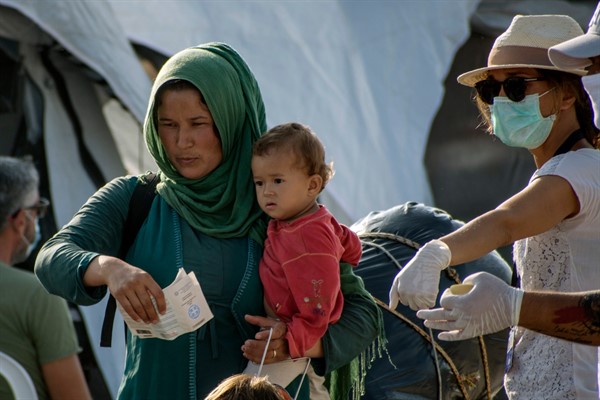When British Prime Minister Boris Johnson left the hospital in April 2020 after having been treated for COVID-19, he released a widely viewed video address in which he thanked the nurses that had cared for him. In singling out two for special mention—Jenny from New Zealand and Luis from Portugal—he shone a spotlight on the critical role that migrants have played during the pandemic.
Throughout the world, migrants work essential jobs. Migrant women in particular play significant roles in the health care and domestic support industries, caring for patients and the elderly. Women make up nearly half of international migrants, and there is nothing new about them leaving their home countries in search of better lives abroad. Doing so often contributes to women’s development, but it also exposes them to new risks and vulnerabilities, more evident now than ever.
As governments pledge to build back better after the coronavirus pandemic, now is the time for them to transform migration policies as part of building more inclusive and equitable societies. In other words, it is time to implement feminist migration policies.

